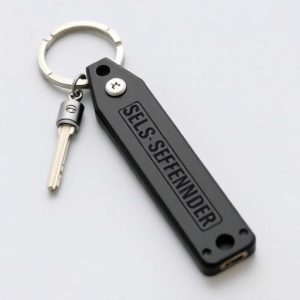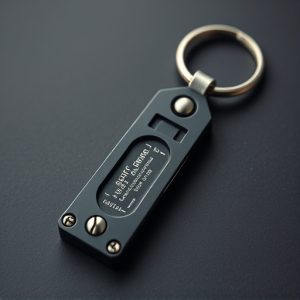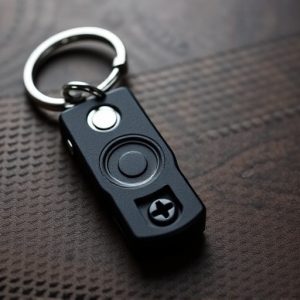Non-Lethal Keychain Weapons Legalities: A Regional Exploration
Non-lethal keychain weapons, while marketed as convenient personal defense tools, face varying legal…….
Non-lethal keychain weapons, while marketed as convenient personal defense tools, face varying legalities globally. Legality depends on local laws regarding self-defense and hidden weapons, with some regions allowing them under specific criteria like sound intensity and pepper spray concentration, while others prohibit them due to potential misuse or gun control policies. Thorough research of regional regulations is crucial to understand the legality of these devices and avoid legal consequences.
In today’s world, personal safety is paramount. One innovative solution gaining traction are non-lethal keychain weapons—compact self-defense tools designed for accessibility. However, navigating their legality across regions can be challenging. This article explores the intricate web of keychain safety device legal requirements, delving into what constitutes non-lethal weaponry and how it varies across jurisdictions. We provide a comprehensive overview, highlight regional differences in allowed non-lethal keychain weapons, and offer compliance tips to ensure users stay within legal boundaries.
- Understanding Non-Lethal Keychain Weapons: What They Are and Legal Implications
- Keychain Safety Device Legal Requirements: A Comprehensive Overview
- Non Lethal Keychain Weapons Allowed: Exploring Regional Variations and Compliance Tips
Understanding Non-Lethal Keychain Weapons: What They Are and Legal Implications
Non-lethal keychain weapons, often referred to as personal defense tools or self-defense keychains, are small, compact devices designed for individuals’ protection. These gadgets typically emit loud sounds, spray pepper spray, or use other non-deadly force methods to deter potential attackers. While they may seem like a convenient option for personal safety, understanding their legal implications is crucial. The legality of non-lethal keychain weapons varies across jurisdictions, and what’s allowed in one country might be prohibited in another.
In many regions, these devices are considered legal if they meet certain criteria, such as sound intensity limits and pepper spray concentration regulations. Some countries allow them only for specific groups, like law enforcement or individuals with a valid permit. It’s essential to check local laws and understand the potential consequences of carrying such a weapon. Non-lethal keychain weapons can be a sensitive topic, especially regarding public safety and security concerns.
Keychain Safety Device Legal Requirements: A Comprehensive Overview
Keychain safety devices, often marketed as personal defense tools, are subject to a range of legal requirements that vary significantly across jurisdictions. Understanding what’s permitted is crucial before considering the purchase and carrying of such devices. The legality of keychain weapons, in particular non-lethal options, depends on local laws and regulations regarding self-defense and hidden weapons. Some regions allow these compact tools for personal protection, while others strictly prohibit them due to their potential for misuse or as a result of strict gun control policies.
When navigating the legal requirements, it’s essential to focus on both state and federal laws. Certain states might permit non-lethal keychain weapons if they meet specific criteria, such as power output limitations or size restrictions. Federal regulations may also come into play, especially for those traveling internationally, as some countries have strict rules regarding personal defense tools, even if they are non-lethal. Staying informed about these legal nuances ensures compliance and peace of mind when carrying a keychain safety device.
Non Lethal Keychain Weapons Allowed: Exploring Regional Variations and Compliance Tips
In many regions, the legal status of non-lethal keychain weapons is a nuanced topic. While self-defense is a fundamental right, regulations differ widely across jurisdictions. Some countries allow certain types of non-lethal personal defense devices, including keychain weapons, under strict conditions. These may include requirements for registration, age restrictions, and specific performance standards to ensure their safety and effectiveness.
When considering the legality of a keychain weapon, it’s crucial to research local laws thoroughly. Compliance tips include checking with your region’s law enforcement or legal authorities, understanding the permitted power levels and use cases, and ensuring any purchased device meets the required safety standards. Always stay informed about updates to legislation to remain within legal boundaries and prioritize safety when carrying any self-defense tool.
In conclusion, understanding the legal landscape surrounding non-lethal keychain weapons is paramount for those considering carrying self-defense tools. While these devices offer a sense of security, it’s crucial to know that regulations vary significantly across regions. By staying informed about local laws and adhering to compliance tips, users can ensure they stay within legal boundaries and maximize the benefits of non-lethal keychain weapons allowed in their areas.


